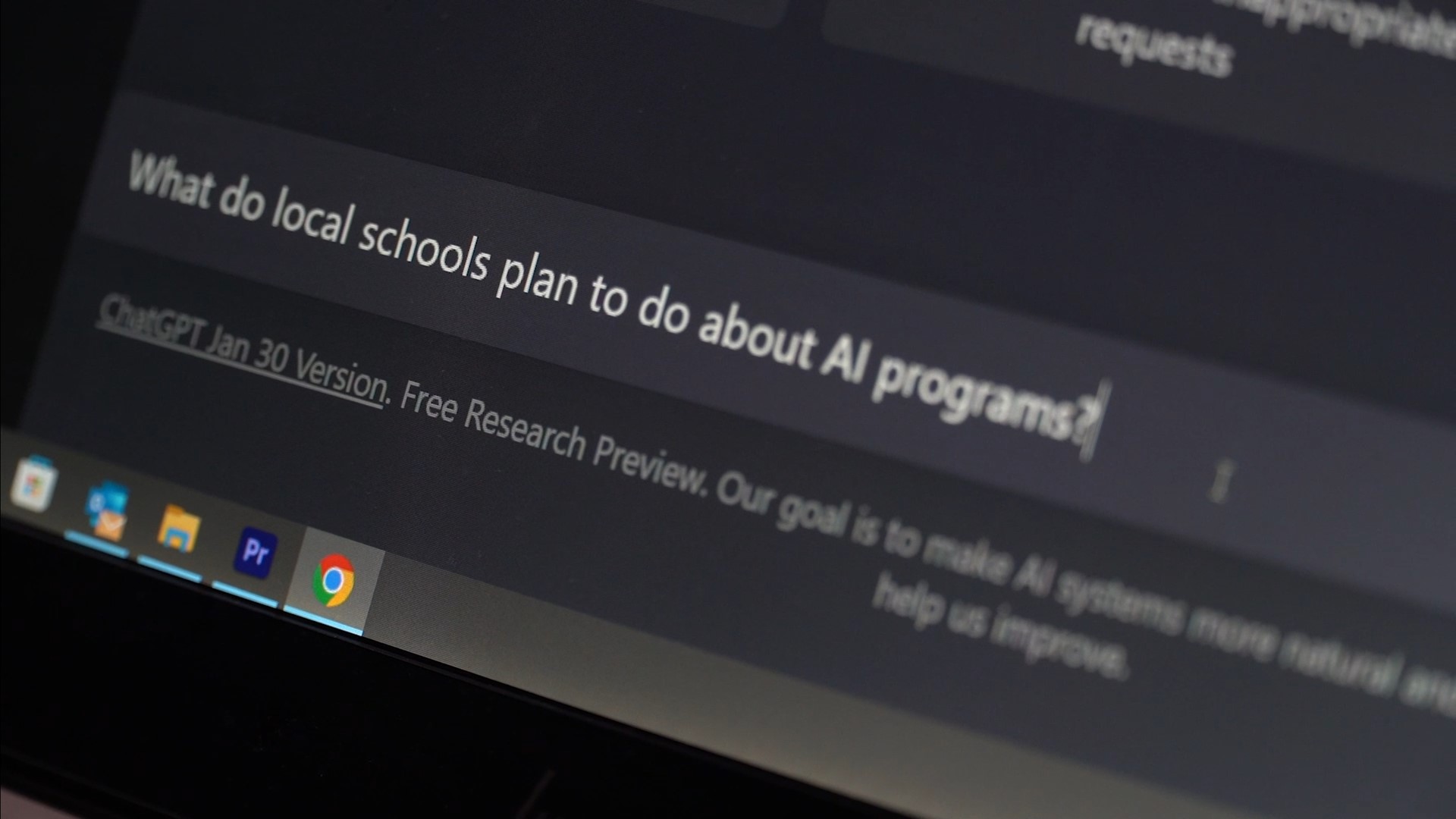FALLS CHURCH, Va. — It’s free; it’s easy to use. It’s called ChatGPT, an artificial intelligence tool that has educators on high alert.
Type in: "Write me a scholarly 1,000 word term paper with citations about Abraham Lincoln" and within seconds, it does so.
Add the text, "Change that to 200 word essay about Abraham Lincoln in a 4th grade writing level," and ChatGPT adjusts.
WUSA9 gathered three Falls Church, Virginia students. When asked if they were concerned about other students in their class using AI programs to cheat on class assignments, all three raised their hands.
“I think it's just unfair, where one person has this edge that they have. It's like giving somebody a scooter and like a race and you're on your feet," said Sam, 16 years old.
"I sort of want to be a politician. If I got all my biases from just an AI, I would be a horrible politician. I couldn't do any debate," added 15-year-old Ella.
10-year-old Danny said, “They don't like – they don't feel like they can actually complete the assignment, or that they're too lazy to do it.”

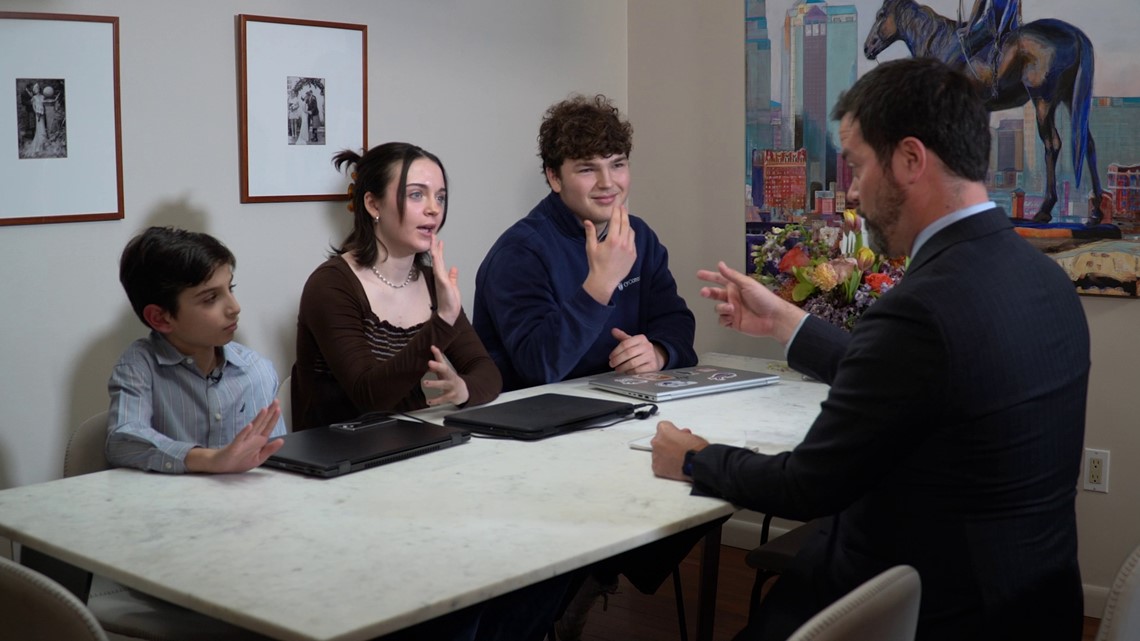
WUSA9 also gathered their parents and asked how they feel about their kids facing students who could be cheating using AI.
Ella's mother Suzanne Gragg said, “Unfortunately, I see it is something nefarious, because it does seem like there's a lot of opportunity, especially for students to use it to cheat. It sort of wipes away all the potential that it has, because you don't want your child going through high school or younger, utilizing that to do all of their work, because they're not going to learn anything.”
Sam's father Andrew Casolini said, “I hope that they can teach our children and as they are the broader context, how to leverage AI in an appropriate way, and really create those solutions that I think our world needs, to be honest with you. There's a lot of problems out there that we need to figure out how to do and hopefully AI will help us get there. It won't replace how we think. It won't replace how we do things. I hope our teachers and professors and mentors will help our kids learn how to deduce better, and look at look at information a little differently than what they had been historically."


Danny's father Eddie Conde added, “I really hope that the educators start embracing the technology and figuring out ways of testing the knowledge and focusing on the critical thinking on what makes us human. Instead of fighting with the machine, instead of fighting with the AI, you embrace it and figure out if this is an essay, an essay can be written very easily by an AI, then maybe there are other tools that where we can still provide input enough information to say 'I am a human' and this is how I think because that's our contribution. It's that uniqueness of us humans that no AI will be able to replace."
We asked local school districts what they plan to do about AI programs.
Prince George’s County Schools says it is evaluating it. Montgomery and Loudoun County told us they banned use of ChatGPT on its school computers. But that doesn’t stop students from using their own computers and mobile devices.
“It's an arms race. And it's been moving quickly, as you can guess, as soon as they come out with a way of detecting it, and someone will come out with a way of getting around those detections," said George Washington University professor Ryan Watkins. "It's probably not a game that we want to play. It's good that it's happening – that people are developing those tools. But we don't want to put all our eggs in that basket of thinking, 'We're going to police our way through this. And that will just be able to catch everyone who wants to cheat,' I think that we have to do better than that. We have to work with our students to make sure they see the value of what they're learning and the ethical problems of cheating. And then provide them in a good context where they feel like we're teaching them valuable things that they can use going forward, and they want to join in those experiences. All together, then along with some policing, I think we can do a good job going forward."

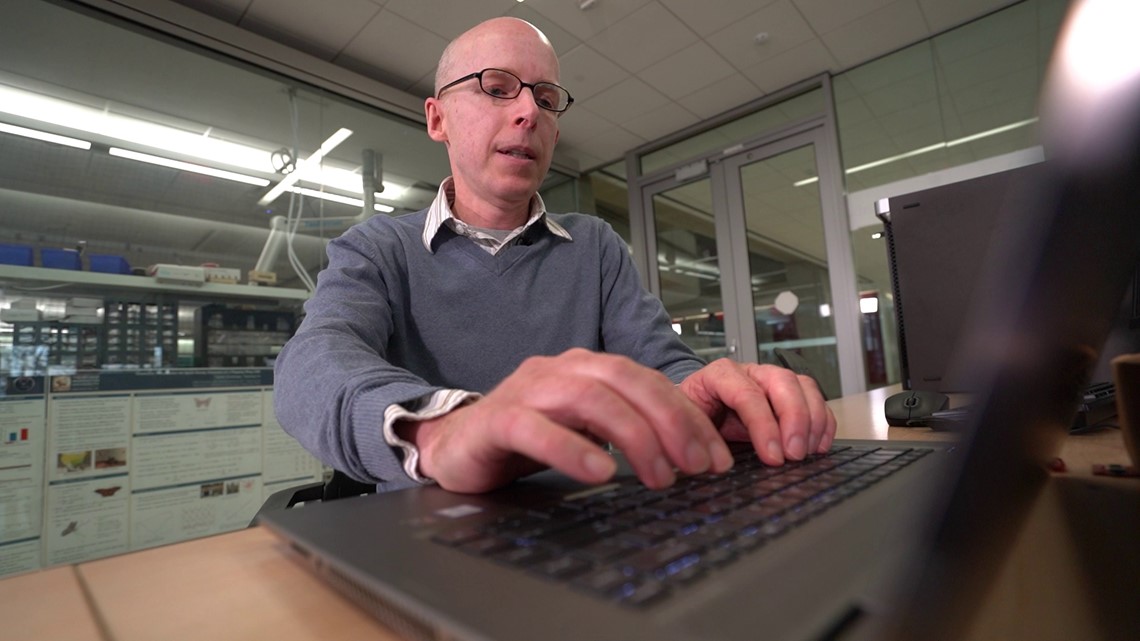
He studies artificial intelligence and advocates for his fellow educators to change their lesson plans: More debates and verbal presentations to prove lesson comprehension rather than written essays which can be cheated.
"Let them have the AI as a tool that helps them think through and create rough drafts and maybe get ideas that they would have missed otherwise," added Watkins. "Then add and complement that with their own work on top of it. And that's really where they can add the value. Then we as teachers can see what they're learning and where they're adding value, with this AI coworker."

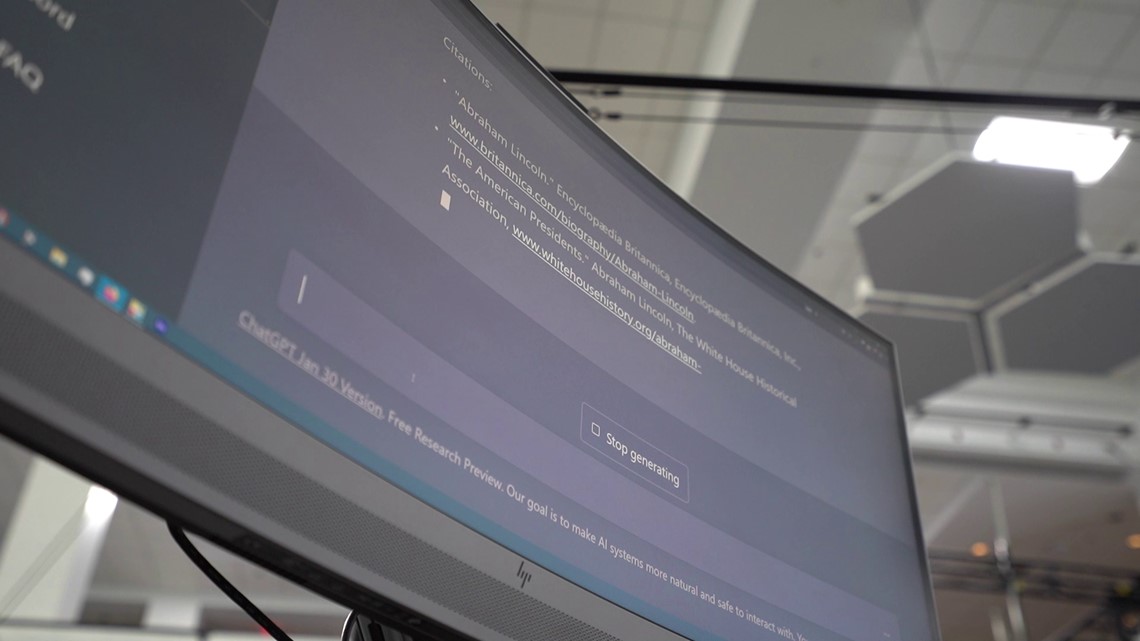
To be clear, AI programs are not only used for cheating on exams. It can open a bold future in learning and the workplace, if used correctly.
"It could be the root of like all these new breakthroughs like science," said 16-year-old Sam.
Ten-year-old Danny added, “If it could get updated much quicker; it could become like a new Google search, basically.”
Fifteen-year-old Ella said, "If you use the correct AI program, you don't have to do like, any work, but hopefully still get paid."

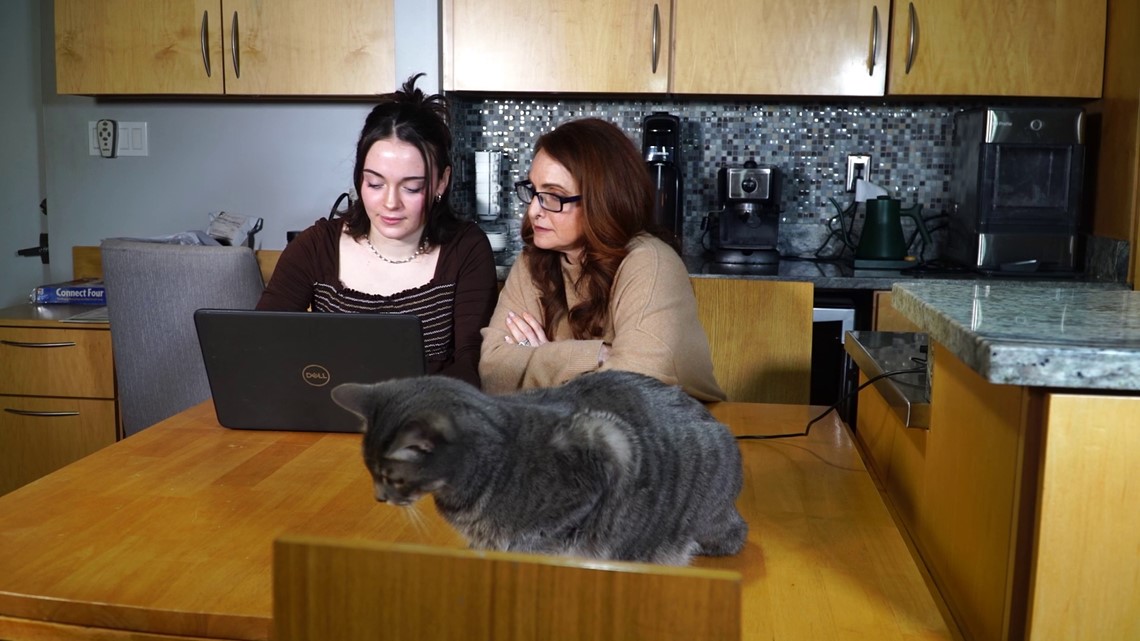
But when asked what her reaction would be if AI took their future job, Ella responded, "In that case, it would be a lot more difficult. That's another reason AI can be very harmful is if it progresses in a negative way."
There are some news organizations using AI chat bots to write the first draft of scripts. WUSA9 isn’t one of them, but it’s possible that what could revolutionize the classroom can do the same for the workplace very soon.

